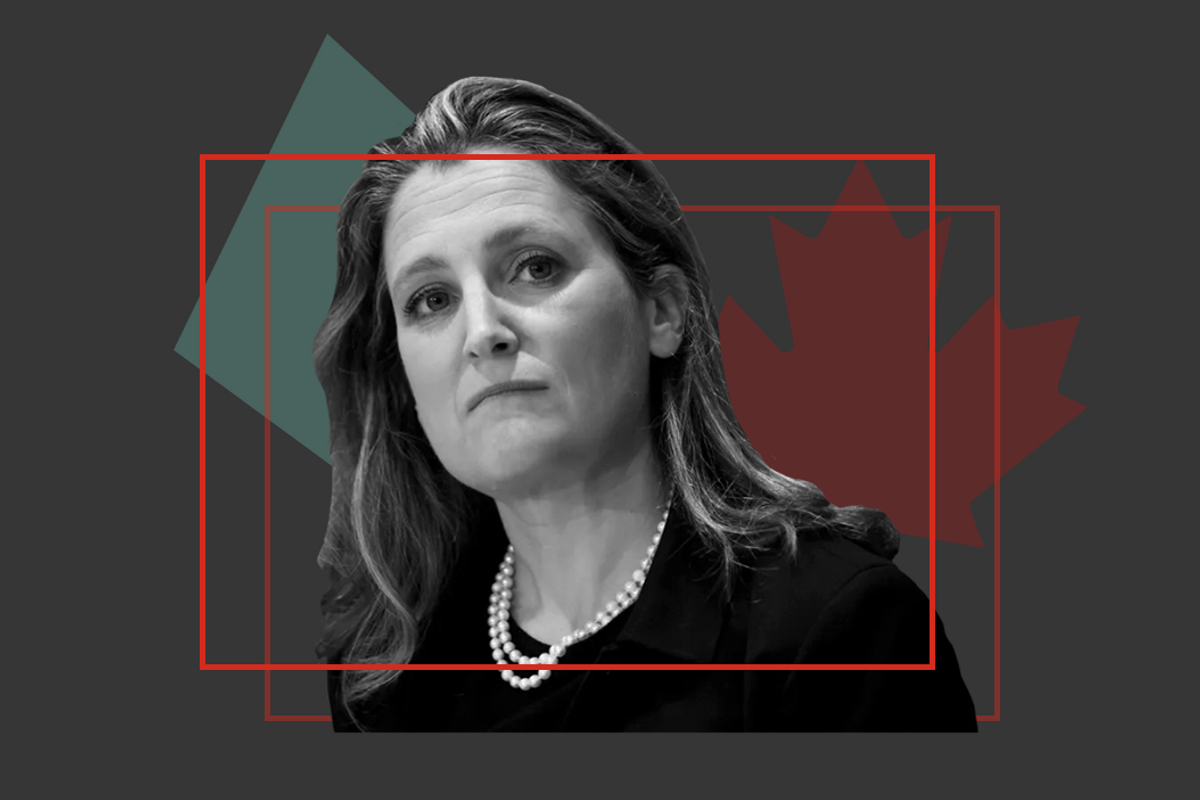Heads of state and government typically dominate the spotlight, but it's the office holders that work for and around them who are responsible for some of the biggest policy decisions that forge their country's place in the world. In 2021, still, women leaders are even more likely to go under the radar than their male counterparts.
This International Women's History Month, we shine a light on a few women around the world who are pulling the levers of power.
Chrystia Freeland — dubbed by POLITICO as "Canada's Minister of Everything" — serves as deputy prime minister, finance minister, and was recently foreign minister and a top trade liaison. What sets her apart from many of her counterparts, and how has her worldview shaped her policymaking?
Negotiator in chief. As Canada's point person on NAFTA renegotiations, Freeland had the mammoth task of overseeing delicate US-Canada relations under the Trump administration in 2018. On the one hand, Ottowa wanted to protect the sometimes fragile relationship with its giant neighbor and top trade partner. On the other, it wanted to ensure that a new deal didn't undermine Canada's long-term economic interests.
Tasked with managing the back-and-forth with an oft-combative Washington — Trump said of Freeland at the time that "we don't like their representative very much" — she played a critical role in getting the new United States-Mexico-Canada Agreement across the finish line. In the process, she scored a big win for Canada — and a personal political boost — by getting the Trump administration to agree to keep NAFTA's trade dispute settlement mechanisms in place, providing needed protection for a country with much less negotiating leverage than its superpower partner.
Meanwhile, the governing Liberal party has also leveraged Freeland's negotiating skills and connections to communities in energy-rich Alberta, where she grew up, to try and find a middle ground between the provincial leaders who back the oil and gas industry and the Trudeau government, which has put forward an ambitious climate agenda.
The world through a feminist lens. When Freeland, a former financial journalist who entered the political fray in 2013, was tapped to become Canada's foreign minister in 2017, she advocated to adopt a "feminist" approach to international affairs. She pushed hard to persuade skeptics to see feminism not as a dirty word, but rather as an equalizing force that benefits all members of society. Empowering women and girls by allocating resources to expand female participation in the workforce, as well as investing in reproductive healthcare, makes countries more peaceful and prosperous, she said.
As a result, Freeland has helped put Canada at the forefront of a global movement in feminist foreign policy, an approach taking shape in countries as varied as Sweden and Mexico. In practical terms, Canada committed to directing 95 percent of its foreign aid budget toward gender equality programs by 2022 (improving girls' education, investing in reproductive healthcare and boosting women's political representation) — one of the boldest targets set by any country.
And now, as the post-COVID economic cleanup gets underway, Freeland, as finance minister, is pushing for a stimulus package that prioritizes the particular needs of Canadian women, who, like women globally, have been disproportionately impacted by the economic toll of the pandemic and increased demands of domestic life. (Consider that 20,600 Canadian women left the labor force between February and October last year, while nearly 68,000 men joined during that time.)
What does this mean in practical terms? Canada is going big. Prime Minister Justin Trudeau has committed to a $79 billion stimulus package that, among other things, will prioritize getting women back into the workforce, while also making a heavier investment in childcare. While skeptics say this could balloon Canada's debt and impede growth, Freeland argues that Canada has more to lose by going too small than too big. Analysts have noted that in appointing Freeland to the finance post during a once-in-a-generation economic crisis, Trudeau is very much banking his political fortunes — and the country's economic comeback — on her leadership.
Progress and the illusion of merit. When Freeland accepted the finance portfolio last summer, critics charged that she wasn't qualified. Much of the discourse ignored the reality that she had a proven leadership track record on a variety of complex issues, and that after leading the way on USMCA, even colleagues across the political divide praised her as the "hardest-working" lawmaker. "They're sending an all-too-familiar message to women seeking high office: No matter what you accomplish, it will never be enough," one Canadian academic said in response.
Freeland's future: The deputy PM has been touted as a future leader of the Liberal party and potential successor to Trudeau. In its history, Canada has had only one female prime minister, who served for less than six months. After the past year has forced many Canadian women to confront the inequality within their own day-to-day lives, many are surely hoping for another one.






